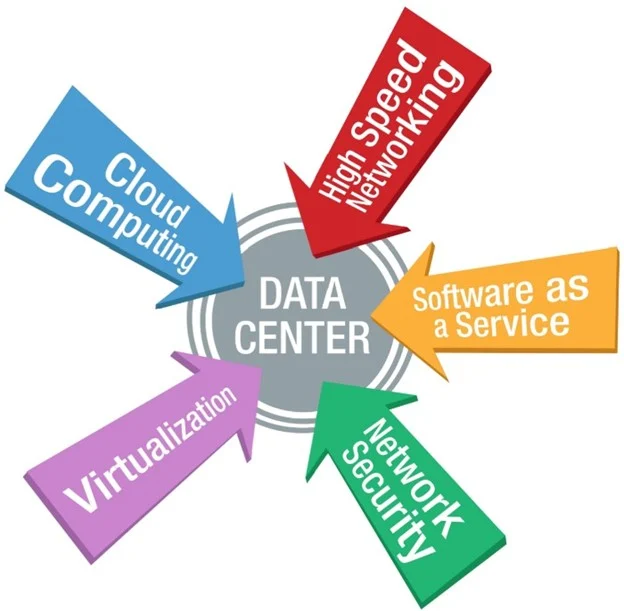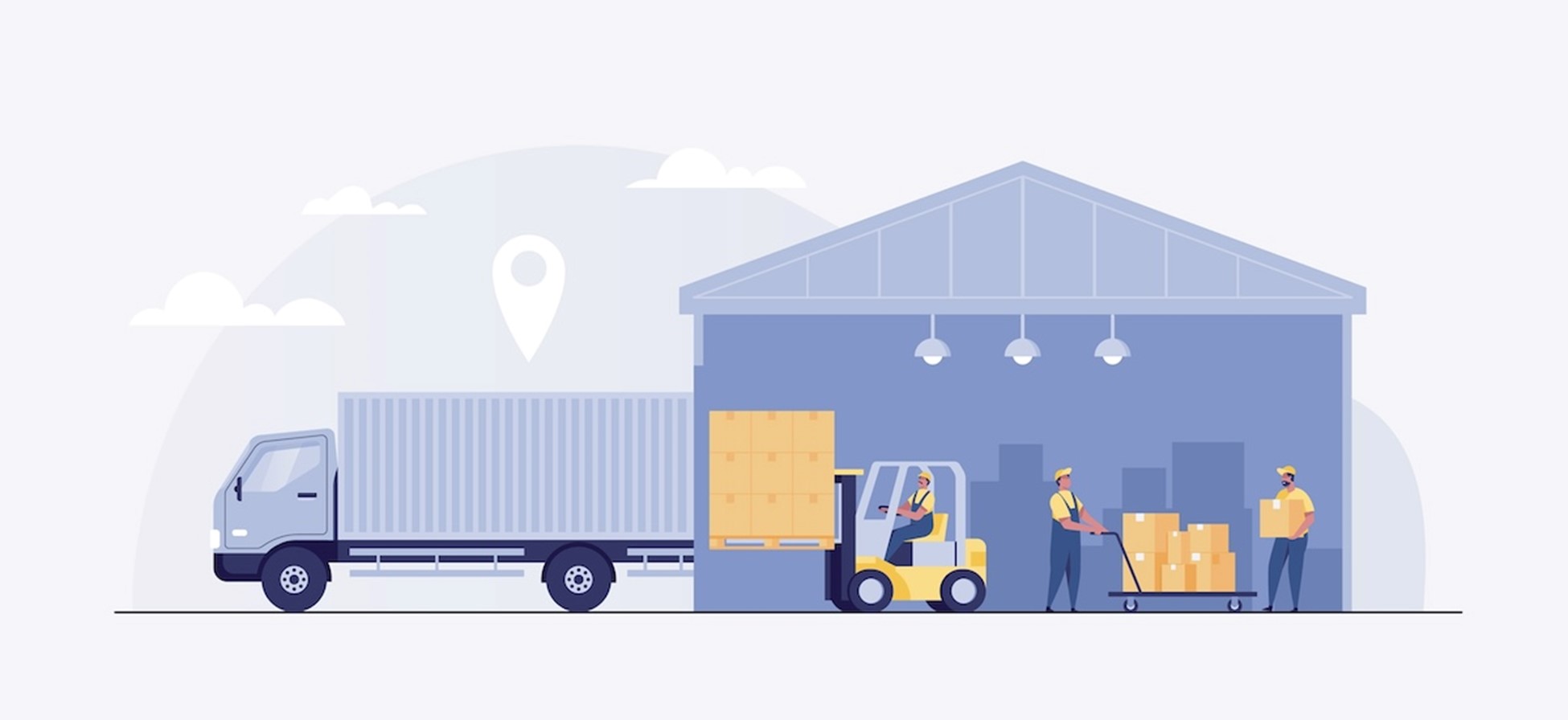When it comes to warehouse management system (WMS) software types for inventory control, there are many different options available to third-party logistics (3PL) providers, distribution centers, and warehouses in the supply chain. Software-as-a-Service (SaaS) based WMS is quickly becoming the preferred choice for businesses of all sizes in the supply chain because of the access it provides to real-time data with just a few clicks of the mouse making it easier for warehouses to organize inventories, track shipments, and reduce errors. In this blog post, we’ll discuss why choosing SaaS warehouse management system could streamline your warehouse tasks while giving your company a competitive edge.
<h3Different Types of WMS Software
 Other than the use of Excel spreadsheets, Quickbooks, and supposedly free inventory management software online, there are basically four types of professional WMS application options for warehouse management systems.
Other than the use of Excel spreadsheets, Quickbooks, and supposedly free inventory management software online, there are basically four types of professional WMS application options for warehouse management systems.
Standalone WMS
Standalone warehouse management software requires a license to be purchased by a warehouse or distribution center. The software is installed on-premises using the client’s own equipment. It is typically more expensive than other warehouse management systems and may require additional hardware and upgrades.
Integrated WMS
A WMS solution that consists of warehouse management system modules or applications as part of an Enterprise Resource Planning (ERP) or Supply Chain Management (SCM) system is considered an integrated WMS. These types of warehouse management systems are often more expensive than standalone WMS but offer a comprehensive suite of features that integrate with other enterprise systems.
Cloud-Based WMS
Cloud-based warehouse management software is accessed via the internet and requires no client additional hardware investment. This WMS solution is usually housed on a client-sourced secure server from a third-party provider.
WMS SaaS
The SaaS WMS solution for warehouses is similar to a cloud-based WMS as it is hosted in the cloud on the service provider’s server, but uses a subscription based payment model. This means you don’t have to buy new equipment or install anything on your own warehouse systems. You simply access the software via an internet browser. Saas WMS is a great choice for warehouse processes and manufacturing operations of any size.
Benefits of Choosing SaaS WMS Inventory Management Software
1. Reduced Infrastructure Cost

With SaaS WMS, you don’t have to worry about purchasing new hardware or software as the service is hosted in the cloud unless you adopt advanced features like RFID or voice picking that require additional equipment. As opposed to a standalone WMS that requires a large upfront investment to purchase the software, a SaaS WMS drastically reduces your initial infrastructure and software costs and helps you save money on system maintenance and upgrade fees. Even if you operate multiple warehouses or via multiple sales channels, SaaS WMS is an affordable warehouse software option for order management and tracking inventory.
2. Increased Scalability
SaaS WMS allows you to easily scale your system processes according to your business needs at the time. If your warehouse operations increase, you can easily add additional resources without having to purchase expensive licenses or hardware components to provide customers with the best support and services. SaaS solutions can easily accommodate e-commerce orders which help to future-proof your business.
3. User-Friendly Interface

SaaS WMS provides an easy-to-navigate user interface, making it simpler and faster for your employees to track stock levels, manage warehouse activities, generate reports, and integrate other systems. A user-friendly WMS can increase productivity and efficiency in daily operations. Plus, users can securely access these features from any device with internet access in the convenience of the warehouse or office or even on the go!
4. Automated Software Updates
 A key difference with SaaS WMS technology is that you don’t have to worry about manually updating the application when new updates are released. The subscription service from your software vendor takes care of this for you automatically, ensuring that your system is always up-to-date with the latest features and security patches. Plus, support is always at your fingertips should you experience any issues with services.
A key difference with SaaS WMS technology is that you don’t have to worry about manually updating the application when new updates are released. The subscription service from your software vendor takes care of this for you automatically, ensuring that your system is always up-to-date with the latest features and security patches. Plus, support is always at your fingertips should you experience any issues with services.
5. Greater Flexibility
SaaS is an all-in-one cloud-based WMS for warehouse management, designed to provide you with a comprehensive set of features without the need for additional software or hardware investments. This flexibility allows you to easily add new capabilities and customize existing processes as your business evolves over time. Plus, you can use these online processes to connect multiple locations or different departments in your organization, allowing people to share data and insights quickly and with ease.
6. Improved Security

SaaS WMS solutions come with advanced security features like encryption, two-factor authentication, and more to secure your warehouse data from potential threats. Plus, the SaaS provider’s servers are designed to protect against malicious attacks and offer heightened levels of protection for your most critical information.
7. Quick Implementation
Implementation of a cloud-based solution like WMS SaaS usually takes less time than setting up a traditional licensed WMS due to its simplified installation process.
8. Easy Warehouse Management Integration

SaaS WMS can easily be integrated with other existing systems such as your CRM, ERP, accounting software, and more. This helps streamline processes across departments like task interleaving and makes it easier to manage all your reporting functionality, shipping costs, billing, cycle counting, and order picking from one centralized platform.
9. No Installation Cost-Effective Solution
All you need to access the cost-effective service is a device, an internet connection, and a compatible browser – no complicated setup is required to access all the features to provide the best services to your customers!
10. Dedicated, Quality Support

An innovative SaaS WMS like SphereWMS offers in-house, world-class support and customer service to help you with any issues or questions that may arise when using the software 24/7. In fact, ongoing support from the SphereWMS team is available via phone, email, or an online portal to assist users with the WMS software.
These are just a few of the many reasons why a SaaS Warehouse Management System is quickly becoming one of the most popular warehouse management solutions for managing inventory in businesses of all sizes. Given the benefits above – it’s no wonder why more and more businesses are turning to WMS SaaS as their warehouse management solution!
For more details on how SphereWMS can take your business to the next level with a premiere SaaS solution for WMS, contact us today for details or a free demo.








